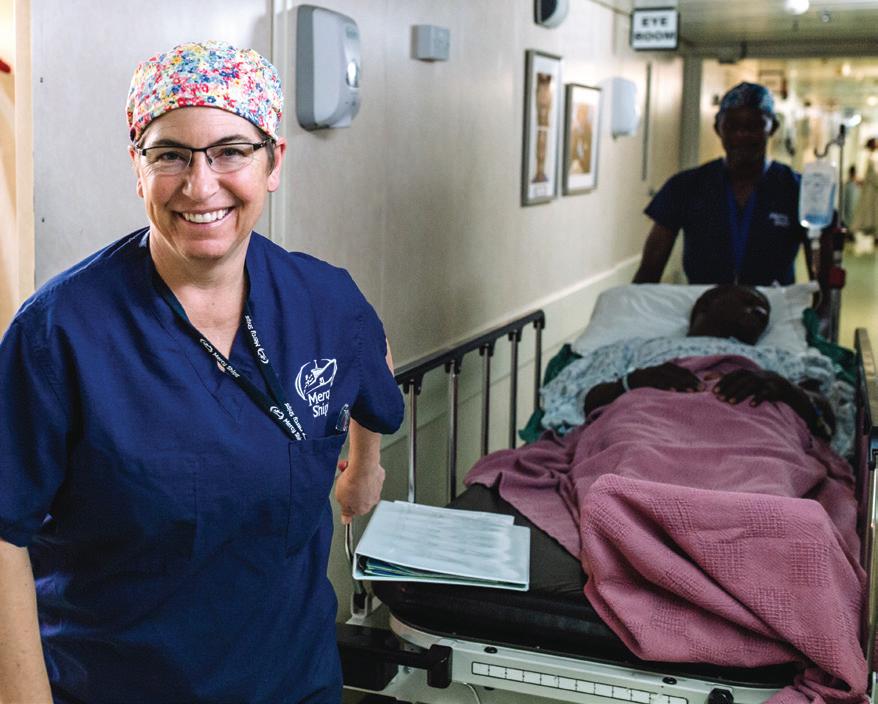
2 minute read
Dr. Glen Mandeville '84

Dr. Glen and Theresa Mandeville
Mandeville retired from his full-time practice in 2017 and joined a company called Comp Health. Through the company, he covers shifts for doctors while they are on vacation, sick leave, or if a surgical team is short staffed. He likes the flexibility offered and the ability to work in many different places. The flexibility of his part-time job allowed him to do something he always wanted to do - provide general surgical services to the world's most vulnerable populations. Over the years, Mandeville and his family visited Haiti on medical mission trips. While there, the medical teams could offer only general health care services. Mandeville always left wishing he could do more. “I thought if I can't get in the operating rooms here maybe I can do it somewhere else,” said Mandeville. He and his wife investigated opportunities with the Texas-based organization Mercy Ships and decided it was a good fit for them. Founded in 1978, Mercy Ships uses hospital ships to provide free medical treatments to the world's poorest countries. Volunteers from 40 different countries crew the hospital ships. The fully equipped and functioning medical facility aboard the ship allows doctors and nurses to treat patients and perform surgeries mere days after reaching port. While on board the ship, Mandeville repaired large complex hernias and soft tissue tumors that interfered with patients ability to work and provide for themselves. His wife served as a recovery nurse. They saw first-hand how the work on board the ship transforms lives. “By helping people change their lives through fixing their [medical] problems, we help them to survive, work, and join their normal culture,” said Mandeville. Mandeville observed that the mission went beyond surgical services. The majority of the people they helped are of the Muslim faith. “Hopefully, it is evident that while we are Christians and they are Muslim, we can still get along,” said Mandeville. “It goes a lot further than fixing their medical problem; it's almost a diplomatic mission in a way.” “By helping people change their lives through fixing their [medical] problems, we help them to survive, work, and join their normal culture.”


It's a mission.

Serve. Emulate. Practice.
Mandeville challenges fellow alumni to look for opportunities to serve, to emulate good role models in their life, and practice the Franciscan values that influenced their education at QU. “Dr. Natalini was a good role model; he was the one who helped me stay on the right track,” reflected Mandeville. “He encouraged me to do well; that led me into a medical career that allows me to do what I do now. It means a lot to me, and I still think about it often.” Years later, the lessons he learned, the values he embraced, and the professors he interacted with are still influencing him today.



